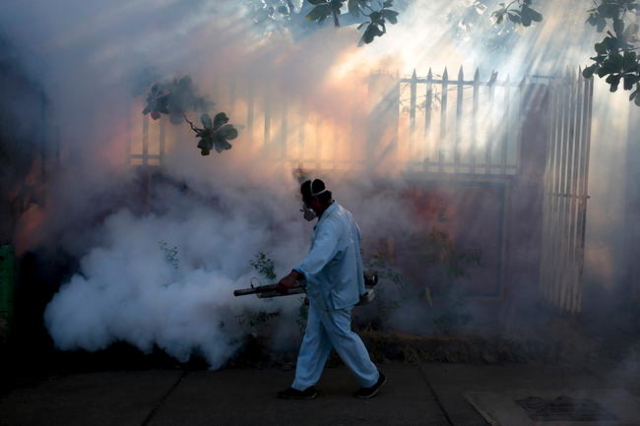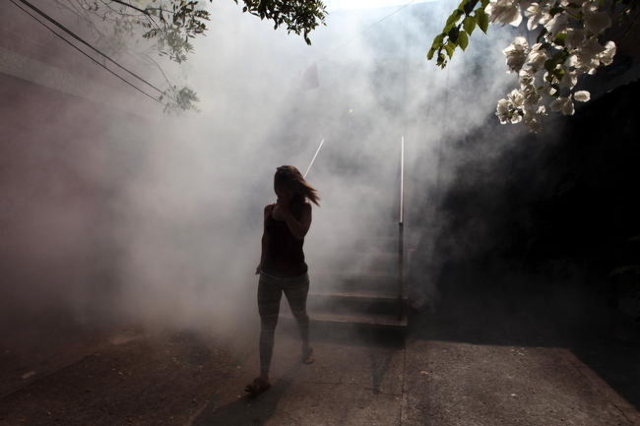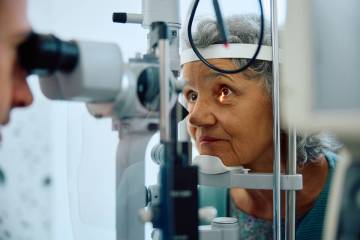US officials call for quick action to contain Zika virus
CHICAGO — U.S. researchers called on the World Health Organization on Wednesday to take swift action on the mosquito-transmitted Zika virus that is linked with thousands of birth defects in Brazil and is rapidly spreading in Latin America and the Caribbean.
Georgetown University researchers urged WHO Director-General Margaret Chan to heed the lessons of Ebola and act quickly. Specifically, they called on the United Nations agency to convene an emergency session of health and infectious disease experts to consider how to respond to the outbreak.
Just convening the meeting would focus attention on funding and research, they said in a viewpoint article published on Wednesday by the Journal of the American Medical Association.
The Zika virus has been linked to brain damage in thousands of babies in Brazil. There is no vaccine or treatment for Zika, which is a close cousin of dengue and chikungunya and causes mild fever, rash and red eyes. An estimated 80 percent of people infected have no symptoms, making it difficult for pregnant women to know whether they have been infected.
Until recently, it was seen as a mild disease, but concern rose after the recent discovery of a possible link to birth defects in some affected countries and also to Guillain-Barré syndrome, a rare but serious condition that can cause paralysis.
Recent models for how the disease is spreading predict "significant international spread by travelers from Brazil to the rest of the Americas, Europe, and Asia," Dr. Daniel Lucey, an infectious disease expert, and Lawrence Gostin, a global health law expert, wrote in the viewpoint article in JAMA.
The WHO's leadership admitted last April to serious missteps in its handling of the Ebola crisis, which was focused mostly on three West African countries and which killed more than 10,000 people.
They pledged reforms, with Chan declaring the WHO had "learned lessons of humility" after the agency was strongly criticized for acting too slowly to declare an outbreak. Some critics have said the WHO's slow response played a major role in allowing the epidemic to balloon into the worst Ebola outbreak on record.
Lucey, a prominent infectious disease expert who treated Ebola patients in Africa, said both Brazil and the Pan American Health Organization, the WHO's Regional Office for the Americas, had done a "great job" responding to the Zika outbreak.
But he added that only Chan had the authority to convene an emergency meeting of top experts on the International Health Regulations' Emergency Committee to consider declaringZika a "Public Health Emergency of International Concern." That is defined by the WHO as a serious health crisis that endangers international public health.
"That is in my view clearly needs to happen, and should have happened already," Lucey said. Convening the meeting would allow for global coordination of travel advisories, research priorities and infection control measures, he said.
Chan would address the Executive Board on Zika on Thursday, sharing the information the WHO has on the virus, and the actions to be taken to respond, a WHO spokeswoman said.
CHALLENGES FIGHTING ZIKA
Reflecting concern over the spreading outbreak, President Barack Obama called on Tuesday for the rapid development of tests, vaccines and treatments to fight the virus, which could spread to the United States in warmer months.
Michael Osterholm, an infectious disease expert from the University of Minnesota, agreed that the Zika outbreak requires swift action from the WHO. But he said the issues with the Zika, a mosquito-borne disease, are quite different from Ebola, which is spread from contact with an infected person.
Whereas Ebola required experts to track the contacts of infected individuals and specialized containment facilities, Zika will require a focus on mosquito abatement. Such programs should include cleaning up garbage from streets, which provide "ideal" breeding ground for the Aedes aegypti mosquito that transmits Zika.
Osterholm also said the WHO needs to provide a clear framework for the development of vaccines and to develop treatment strategies for infants born with microcephaly and those who develop Guillain-Barré syndrome, which involves intensive treatment to support breathing.
"These patients may require extensive medical support for months to many years to come," he said. "Who is really handling that?





















